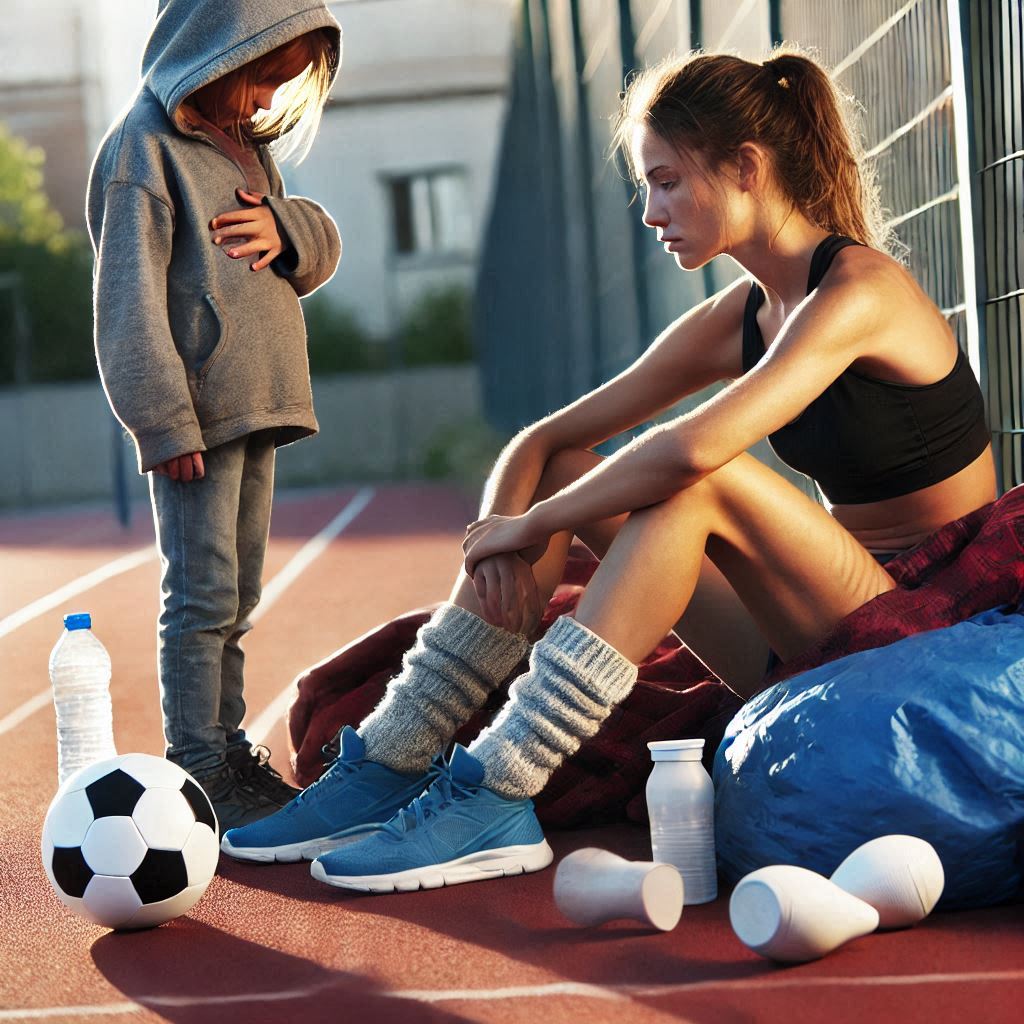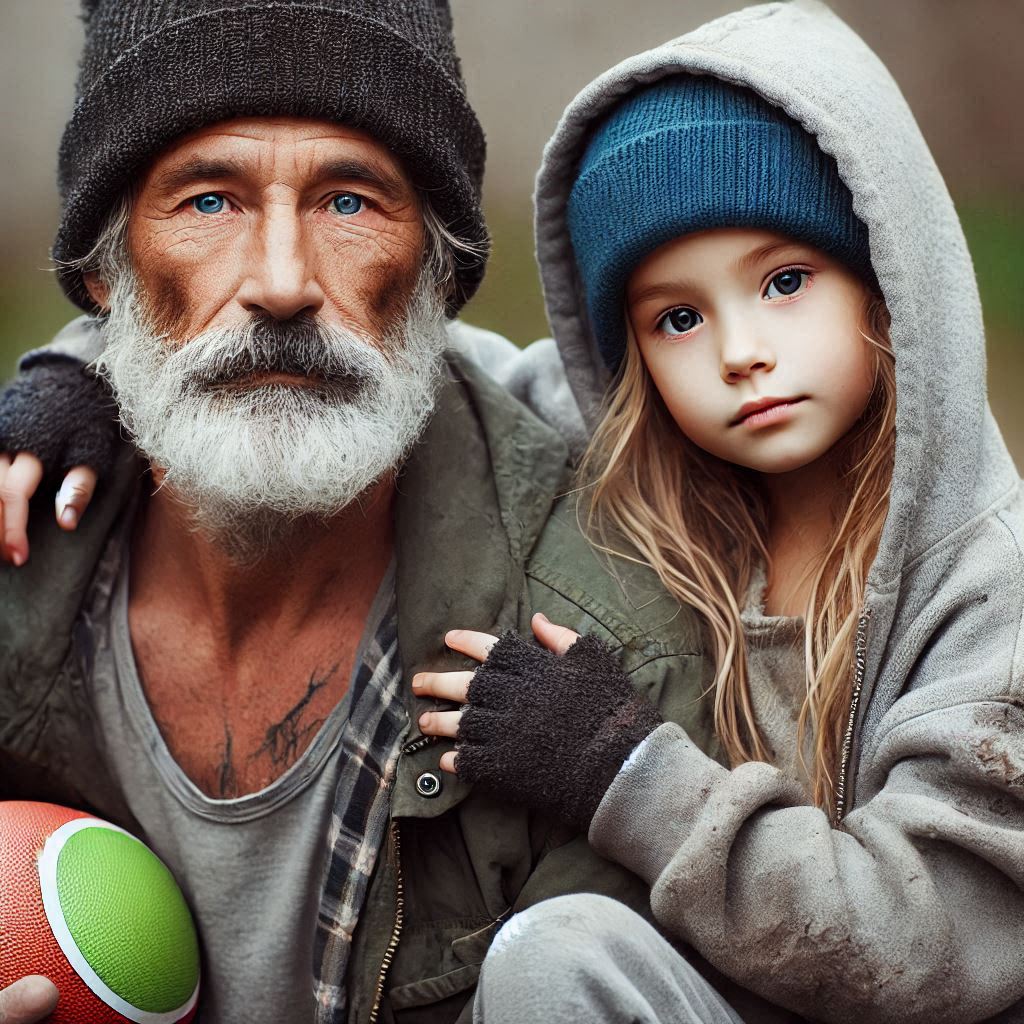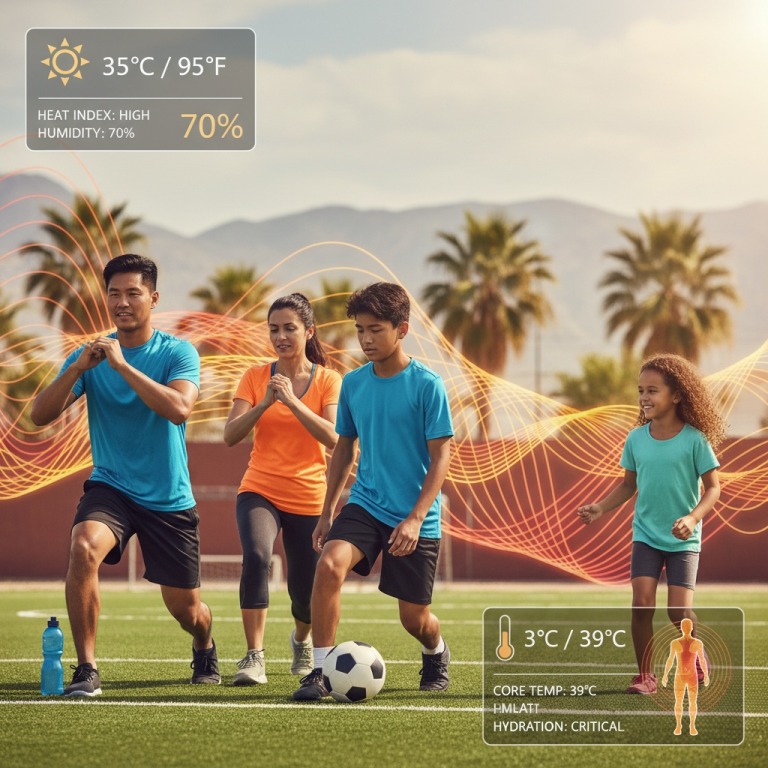Homelessness & The Reality Of Sleeping In Cars To Achieve Sport Greatness
Homelessness
Homelessness and living in cars cast a glaring spotlight on the systemic failures plaguing our society. It’s an outrage that such issues persist, especially in areas that boast robust support systems meant to safeguard against these very crises. The presence of homelessness, even within communities with ample resources, underscores a blatant disregard for vulnerable populations.

In the realm of sports, this issue becomes even more glaring. If the plight of homeless athletes were taken seriously, significant strides could be made to minimize this disgraceful occurrence. The sports industry, with its vast resources and influence, has a moral obligation to address and alleviate homelessness within its sphere. This targeted intervention could free up critical support, easing the overall burden on social services and allowing more comprehensive assistance for the broader homeless population.
It’s time to demand accountability and action from all sectors, particularly those with the means to make a significant impact. Ignoring the issue is no longer an option—it’s a call to arms for systemic change and dedicated support.
This issue extends far beyond the realm of sports, affecting many individuals who face homelessness or are homeless. Athletes, however, occupy a unique position because they are often thought to be part of a supportive network that includes teams, organizations, and sponsorships.

The Hidden Struggles of Aspiring Athletes
In the world of professional sports, the journey to success is often depicted through a lens of triumph and glory. However, the untold stories of financial hardship and personal sacrifice frequently lie beneath the surface. A growing number of aspiring athletes find themselves in a precarious situation where the pursuit of their dreams leads them to sleep in their cars. This harsh reality reveals the significant financial strains they endure and the shortcomings of current support systems. It also underlines their unwavering determination to bring national pride and serve as role models for future generations.
The Financial Realities Faced by Aspiring Athletes
Embarking on a career in professional sports requires substantial investment. Training programs, specialized equipment, travel for competitions, and daily living expenses can quickly become overwhelming. While some athletes secure scholarships, grants, or sponsorship deals, these opportunities are scarce and highly competitive. Without sufficient financial backing, many athletes resort to living out of their cars to cut costs, prioritizing their athletic aspirations over personal comfort and stability.

Psychological and Emotional Impact
The psychological toll of living in a car is profound. Athletes experience heightened levels of stress, anxiety, and isolation. The lack of a stable and secure living environment can lead to sleep deprivation and a decline in mental health. The stigma associated with homelessness further exacerbates these issues, leading to feelings of shame and embarrassment. Athletes must maintain peak physical performance while grappling with these emotional challenges, which can significantly hinder their progress.
The Effect on Athletic Performance and Development
Living in a car can severely impact an athlete’s performance. Inadequate sleep, poor nutrition, and limited access to proper recovery facilities can diminish their ability to train effectively. The physical strain and mental exhaustion make it difficult to focus on honing their skills and achieving peak performance. Consequently, these athletes face a steeper uphill battle in their quest to secure spots on professional teams or national squads.

The Role of Sports Organizations and Community Support
Addressing this issue requires a multifaceted approach involving sports organizations, government agencies, and community initiatives. Providing affordable housing options and financial assistance programs for emerging athletes can alleviate some of the pressures they face. Additionally, creating awareness about the challenges athletes endure can inspire greater community support and philanthropic efforts. Local businesses, sports clubs, and individual donors can play a crucial role in supporting these athletes by offering sponsorships, mentorship, and resources.
Inspiring the Next Generation
Despite the hardships, many athletes persevere, driven by their passion and dreams of achieving greatness. Sports people can learn but not live in the past. Their stories of resilience and determination serve as powerful sources of inspiration for young people. By showcasing the challenges and triumphs of these athletes, we can foster a culture of empathy and support, encouraging aspiring athletes to pursue their goals with confidence. The journey of these athletes emphasizes the importance of hard work, dedication, and perseverance, instilling valuable life lessons in the youth who look up to them.

National Pride and Identity
Athletes who overcome significant obstacles to represent their country embody the spirit of national pride and resilience. Their commitment to excellence and their unwavering dedication inspire a sense of unity and pride among the populace. As these athletes compete on the international stage, their stories of overcoming adversity resonate deeply with fans and fellow citizens, reinforcing a collective national identity built on perseverance and determination.
The Broader Societal Impact
The struggles of aspiring athletes have broader implications for society. Addressing the financial and psychological challenges faced by these individuals can lead to more inclusive and equitable support systems. By investing in the development of young athletes, we contribute to a healthier and more vibrant sports culture that values the well-being and success of all participants. This, in turn, can have a positive ripple effect on communities, fostering greater engagement in sports and physical activities.

The Underappreciation of Athletes and Their Impact on Society
Despite the immense dedication, skill, and perseverance required to excel in sports, athletes are often not given the recognition they deserve as vital contributors to society. This lack of appreciation stems from several misconceptions and societal biases that undervalue their roles beyond entertainment.
Misconceptions and Biases
Perceived Glamour
Many people view professional athletes through the lens of fame and fortune, overlooking the intense hard work and sacrifices they make. The perception of athletes as celebrities can overshadow their humanity and the everyday struggles they face.

Short Careers
Sports careers are often short-lived due to the physical demands of the profession. This can lead to a perception that athletes do not have long-term contributions to make, which is far from true given their influence and legacy.
Entertainment vs. Real Work
There is a tendency to separate sports from other professions deemed more “serious” or “productive.” This false dichotomy undervalues the significant impact athletes have on national pride, community cohesion, and inspiring future generations.
Athletes as Role Models
Athletes play a crucial role in shaping the values and aspirations of young people. Their achievements and stories of perseverance provide powerful examples of what can be accomplished through dedication and hard work.

Inspiring Dreams and Ambitions
Athletes inspire young people to dream big and pursue their passions, regardless of the obstacles they may face. Their stories of overcoming adversity resonate deeply with children, teaching them resilience and the importance of perseverance.
Promoting Healthy Lifestyles
By advocating for physical fitness and healthy living, athletes encourage children to engage in sports and outdoor activities. This not only promotes physical well-being but also instills discipline and teamwork.
Advocating for Social Change
Many athletes use their platforms to raise awareness about important social issues, from racial equality to mental health. Their advocacy can inspire young people to become more socially conscious and active in their communities.
Building Community and National Pride
Successful athletes bring immense pride to their countries, uniting people through shared victories and national representation. This sense of pride and unity fosters a stronger, more cohesive society.

Real and Important Contributors
Athletes contribute significantly to the development of a nation, both economically and socially.
Economic Impact
Sports events generate significant revenue through ticket sales, broadcasting rights, and merchandise. Additionally, athletes’ presence can boost tourism and local economies.
Cultural Ambassadors
Athletes serve as cultural ambassadors, representing their country on the global stage. Their achievements in international competitions showcase the nation’s talent and foster international goodwill.
Educational Advocates
Many athletes support educational initiatives and provide scholarships to young people. By investing in education, they help create opportunities for the next generation to succeed.

Philanthropic Efforts
Athletes often engage in philanthropy, supporting various causes and charitable organizations. Their contributions can make a substantial difference in addressing social issues and providing resources to those in need.
Why No Athlete Should Face Homelessness
The notion that any individual, let alone an aspiring athlete, must endure homelessness is a stark reminder of societal shortcomings. Athletes, who dedicate their lives to perfecting their craft, often do so with the dream of representing their country and bringing pride to their nation. It’s unacceptable that those on the path to becoming national heroes and role models are left without the basic support necessary to sustain their journey.
National Representation and Pride
Athletes who go on to represent their country embody national pride and unity. They serve as ambassadors on the global stage, showcasing their country’s talent, resilience, and spirit. The idea that such individuals should face homelessness while striving to achieve greatness is a tragic paradox. Supporting these athletes is not just a matter of providing housing; it’s about investing in the future of national identity and pride.

Team Structure and Support
Professional sports teams are built on the foundations of unity, support, and collective success. When athletes within these structures are forced to sleep in their cars due to financial constraints, it reflects poorly on the team’s commitment to its members. Teams should prioritize the welfare of their athletes, ensuring that they have the necessary resources to thrive both on and off the field. This includes providing adequate financial support, mental health resources, and ensuring a stable living environment.
Government and Institutional Responsibility
Governments and sports institutions have a responsibility to support their athletes, particularly those who show promise of representing their country. Programs and policies should be in place to provide financial aid, affordable housing, and access to training facilities. Ensuring that athletes are well-supported is an investment in national pride, cultural development, and the promotion of healthy lifestyles among the population.

Why Does This Happen?
Homelessness In Sports
The fact that some athletes still experience homelessness despite this supposed support highlights a significant gap. Reducing these struggles for athletes is essential. This will allow homeless help and helpers to focus on more homeless people and not worry about this side as well.
Easy to say these things but the homeless help and advocacy careers potentially contribute to broader efforts to address homelessness in society and these people need less to deal with and not more. Homelessness is a sad issue for all involved.
Some countries cannot help this issue as they are just not welthy enough but lots of countries are and this still happens. No matter what country or society do better for your homeless. They are people.

Financial Barriers and Inequities
The path to professional sports is often financially demanding, with significant costs associated with training, travel, and equipment. For many athletes, especially those from lower-income backgrounds, these costs are prohibitive. Without sufficient sponsorship or support, they face the difficult choice of compromising their living conditions to continue pursuing their dreams.
Lack of Comprehensive Support Systems
Many sports organizations lack comprehensive support systems that address the holistic needs of athletes. While some resources may be available for training and development, there is often insufficient focus on providing financial aid, mental health support, and housing assistance. This gap leaves many athletes struggling to balance their sporting ambitions with basic survival needs.

Stigma and Awareness
There is a pervasive stigma associated with homelessness, which can lead to athletes suffering in silence. Many may feel ashamed to speak out about their situation, fearing it could harm their reputation or career prospects. Additionally, there is a lack of awareness about the extent of this issue among policymakers and the public, which hinders the development of effective support mechanisms.
Inequitable Distribution of Resources
Within sports organizations, resources are often unevenly distributed, with a focus on established stars rather than up-and-coming talent. This disparity means that young, aspiring athletes may not receive the financial backing or support they need to progress, leading to situations where they are forced to live in substandard conditions.

The Call for Change
Recognizing the plight of athletes who sleep in their cars to pursue their dreams is the first step towards meaningful change. Policymakers, sports organizations, and communities must come together to develop comprehensive support systems that address the unique needs of aspiring athletes. This includes providing financial aid, mental health resources, and access to safe and affordable housing. By creating a supportive environment, we can help these athletes reach their full potential and achieve the success they so rightfully deserve.
Addressing the Challenges and Reducing Homelessness Among Aspiring Athletes
Tackling the issue of homelessness among aspiring athletes is undoubtedly challenging, but it is crucial for both the well-being of these individuals and the broader societal goal of reducing homelessness. While the financial and logistical difficulties are significant, a concerted effort to address these issues can make a meaningful impact.

The Complexity of the Issue
Financial Constraints
Many athletes face substantial financial barriers, including the high costs of training, travel, and equipment. Addressing these constraints requires a multifaceted approach, including financial support from sports organizations, government grants, and community sponsorships.
Mental Health Support
The psychological toll of homelessness is profound. Providing access to mental health resources and counseling can help athletes manage the stress and anxiety associated with their situation. This support is essential for maintaining their mental well-being and ensuring they can continue to perform at their best.
Affordable Housing
Ensuring that athletes have access to affordable housing is a key component of addressing homelessness. This might involve partnerships between sports organizations and housing providers or the development of specific housing programs for athletes in need.
Awareness and Advocacy
Raising awareness about the challenges faced by aspiring athletes can help generate public support and drive policy changes. Advocacy efforts can highlight the importance of investing in these individuals, not only for their personal development but also for the broader societal benefits they bring.

Conclusion
The issue of aspiring athletes sleeping in cars highlights the significant financial and emotional challenges faced by those striving to achieve greatness in professional sports. Their resilience and determination serve as powerful reminders of the sacrifices made in the pursuit of dreams. By addressing these challenges and providing the necessary support, we can foster a more inclusive and nurturing sports culture. In doing so, we not only help athletes achieve their full potential but also inspire future generations to strive for excellence and contribute to the development of national pride and identity.
The reality that some athletes must endure homelessness while striving to achieve their dreams is unacceptable. These individuals, who have the potential to bring national pride and inspire future generations, deserve comprehensive support from their teams, government, and society at large. Addressing the financial, mental, and logistical challenges they face is crucial for ensuring that they can pursue their goals without compromising their well-being. By doing so, we not only support our athletes but also invest in the future of national pride and the development of a healthier, more inspired society.
Join the Discussion
We would love to hear your thoughts on the significant issue of homelessness among aspiring athletes. Do you think enough is being done to support these individuals who strive to represent our nation and inspire future generations? What measures do you believe could be implemented to better support athletes and prevent them from facing homelessness?
Have you or someone you know experienced similar challenges in pursuing a career in sports or another field? How do you think communities, sports organizations, and governments can work together to address this issue more effectively?







Spending time here means the world to us. Thank you for being part of this blog’s story and success!
Thank you for your kind support. It’s readers like you who make creating content so meaningful!